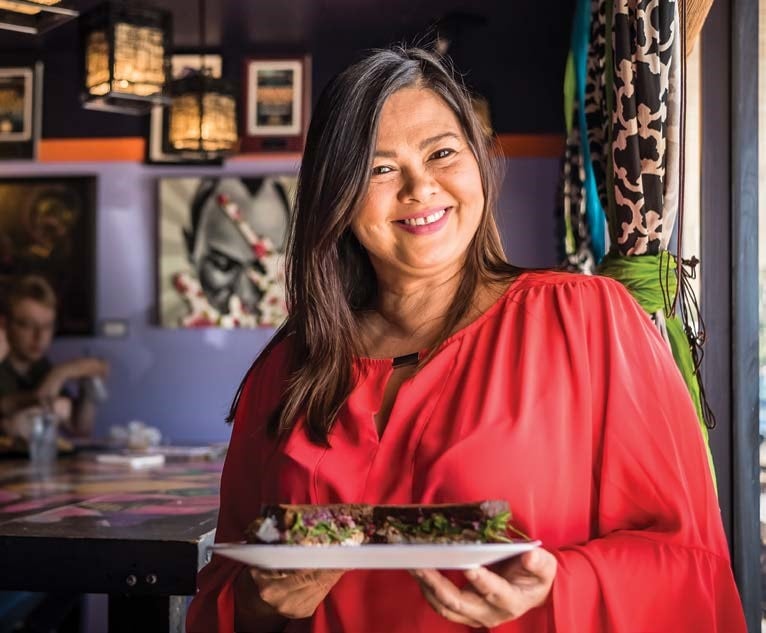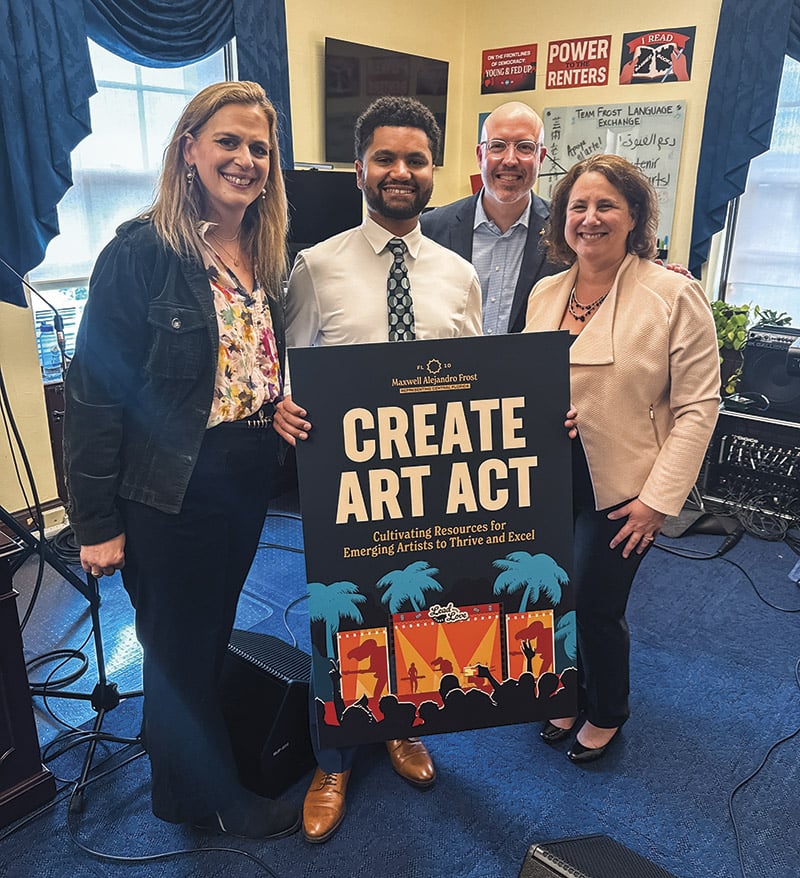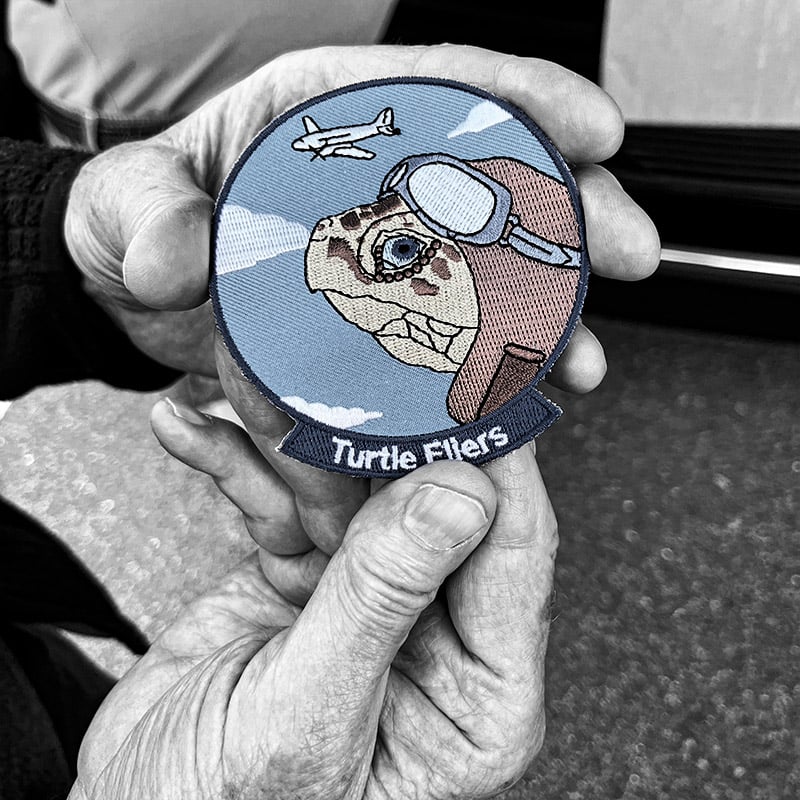Black Leaders in Central Florida: Camara Williams
Attorney & Political Strategist
Authentically Black
Being Black in America requires the understanding of living in the duality of existences contemporaneously. It feels, for most of us, that you must live in two separate Americas. An America layered in ‘conventional’ white ideals, iconography, aesthetic, culture, politics, rules and societal norms. The default mode for most Americans is one based on the white lens or as we say it now commonly framed in the white gaze.
Most Black Americans operate within the understanding that in order to prosper, progress, and protect ourselves and our family, we must be culturally bilingual. I am going to allow you to take a moment to process that last sentence.
OK, let’s continue…
Yes, virtually all Black Americans can read, write, communicate and interpret at the very least, two distinctive cultural languages, White America and Black America. We do this by incorporating a very simple methodology.
Code switching
Code switching is not something that is taught in a home, well at least not in a formal way. This necessary skill is developed by our own experiences, watching our parents, and quite frankly our acute studying of White culture. It’s because of this social case study that Black Americans have had to become cultural anthropologists. We have become so fluent in this behavior that it becomes instinctual. The most remarkable aspect of it all, is that we as a people do not even have to consciously perform anymore, it just instinctively happens. In a way, it becomes part of a personality trait. However, one truth steadily remains, that no matter how comfortable we become in changing identities, conforming or even adapting like a chameleon into the environment foreign from our own, no matter how much we adapt and assimilate, this change will never be natural.
As unnatural as it is, we do code switch because it is our belief that it ensures our survival socially, culturally and economically. There is no denying we water down our beliefs, raise our voices to a higher octave (a reference we jokingly refer to as our ‘customer service voice’), and overall create an affable disposition in order to make the world, particularly white America feel safer in our presence. Often, Black men and women are perceived to be too aggressive, too loud, and frankly too much. So, our response to this unfair characterization is to “soften” our image, our aesthetic, our appeal in order to be more digestible for those whom we seek validation. A Black man must shave his beard, dress in a certain way, and demonstrate a congenial, meek persona as to not invite harm and danger. A Black woman must exhibit a lower tone, change her hairstyle, and wear clothing covering her natural features, as to make people around her more comfortable. We change our names on resumes and display interest that align with white culture Americana so that we are not perceived as dangerous. We soften our image to appease and protect. We present a color-blind perspective when discussing social issues, and/or try and project a neutral stance when subjects of race arise. We willingly and continually water down our Blackness to not offend. Even if those same spaces deserve, scratch that, need to hear our real feelings on the matter.
The gag is though, no matter how much we acquiesce and assimilate into a paradigm that appeases white sensibilities and centers the white gaze it does not protect us from targeted abuse, harassment, bigotry, discrimination and violence, that we readily seek to avoid.
I remember when former First Lady Michelle Obama spoke at the Democratic Convention in 2008, for the world this was the first time they really had a chance to see and hear her talk. Before then, many national media outlets had characterized her as an aggressive woman, with no distinction. Who can forget that fun little exchange she had with her husband months before as she exited the stage after introducing him. Upon passing each other and exchanging a look, she initiated a loving, encouraging, ‘you got this fist bump’ to her husband. What ensued was the term ‘Terrorist Fist Bump’ to characterize their exchange. So here we are watching her months later at the convention and as she is going through her speech, she mentions how much she absolutely loves “The Brady Bunch”. Which is a great show, but I always found it fascinating that she highlighted that particular interest. It was almost to show the world and her detractors, “Hey! I am just like you”. She needed to outwardly display an image and aesthetic that was relatable to everyone in order to be provided the humanity she should have been immediately owed. Regardless of her interest. The political talk shows predictably replayed that portion of the speech, repeatedly. It was as if to communicate to their audience, that she was safe and could be trusted.
So why do I bring all these things up? Well, I am glad you asked.
You see, I used to believe in code switching. For a while I adhered to these very same principles and ‘unspoken’ societal rules. The intrinsic belief that there was a societal racial hierarchy and programming. That a display of true Blackness would be deemed inappropriate. Improper. Not warranted.
I used to whitewash and soften my image, aesthetic and views in order to be considered more digestible for my environment and less aggressive. I used to enfeeble my socio-political positions in order to seem more agreeable. All this was done under the guise of acceptance. Until I woke up one day and realized that none of this made me happy, authentic, or even remotely protected. Not to mention I was not proud of sanitizing my true essence in order to make others feel comfortable. The question I inherently asked was, why was it more important that “They” (whomever they were) feel more comfortable in a space then I do? Why is their peace more valuable than mine? And finally, was I happy constantly in my performative state? When I could not come up with a viable answer, I realized I was unhappy with myself and who I represented. I asked myself, how can I be a leader in my household and in the community if I am unhappy with my own presence. Thus, I stopped living in duality and started living authentically Black.
What does that mean exactly? Well for me, it started with no longer code switching my words in spaces that did not look like me. I no longer centered whiteness in my world. That meant my presence would not adhere to whether it fit within the proverbial white gaze.
It also began with me being more honest on how I see the world and admitting openly that I center Blackness in every iteration, and I was going to live how I felt on the inside. A proud Black man. Meaning that I will fiercely advocate on the behalf of my people and culture at every waking moment. Now that doesn’t mean exhibit hate or intolerance to other groups. On the contrary, my living in truth allowed me to validate my opinions and love for other cultures and traditions as well. And so because my authenticity was so pronounced in one area, it allowed my perception of truth to leak out in other expressions as well. So, if my identity and interests align with the majority of white America, that was fine, but if it didn’t, well that was fine too. My truthfulness, my integrity shown through, and people were able to focus on my personality and intelligence, rather than some false premise of me.
Who knew that being real in one space would pay dividends in another. As far as my business was concerned, I found that this also deepened the trust the community had with me. I also dealt with more clients that were not intimidated by my blackness. I received clients from all races, backgrounds, genders, and cultures, who identified with my principles and ideals. My honesty in myself, translated in them seeing honesty in my services and actions. And despite having literally hundreds of clients over the years, I offer no exaggeration when I say that I have relationships with each and every one of them. They trust me, and I trust them.
Let me also add this, so as not to be construed in any negative connotative way. There is no specific way to be “Black”. To be more specific, Blackness is not a stale monolithic ideal. It’s an immersive experience deeply dependent on your personal background and history. There is no one way to exhibit Blackness. However, to remix an old Supreme Court saying and apply it contextually to this moment:
“I can’t tell you or describe to you what Blackness is at the moment, but I can recognize it when I see it…”
As I end this think piece, I want to leave the reader, particularly someone who is Black and struggling with identity in a white space, with something of encouragement. This article is designed to highlight leadership. But what is leadership exactly? Well to me it’s the willingness to be bold and confident. To be a beacon of stability and vision. To not waiver in principle or position. To allow adjustment and become comfortable in that adjustment. To adhere doctrine of growth, regardless of how that progress comes about. To be steadfast and true. So, I challenge you, to live your truth. Stand out in front of it. Become a leader of your identity and I promise you the world will follow.
Living your true self will open more doors and possibilities, then creating an aesthetic that is divorced from your reality and your humanity. You must break away from the antiquated belief that your humanity is based on how people perceive you. No. The truth is, that your humanity is owed to you, regardless if you like the Brady Bunch, or watched Good Times. Your humanity is not tied to your interest, aesthetic, or your socio-political position. Your humanity is tied the very fact that you exist. You are enough. So live true. Speak up and do not forget to live authentically Black. Whatever that phrasing means to you.





